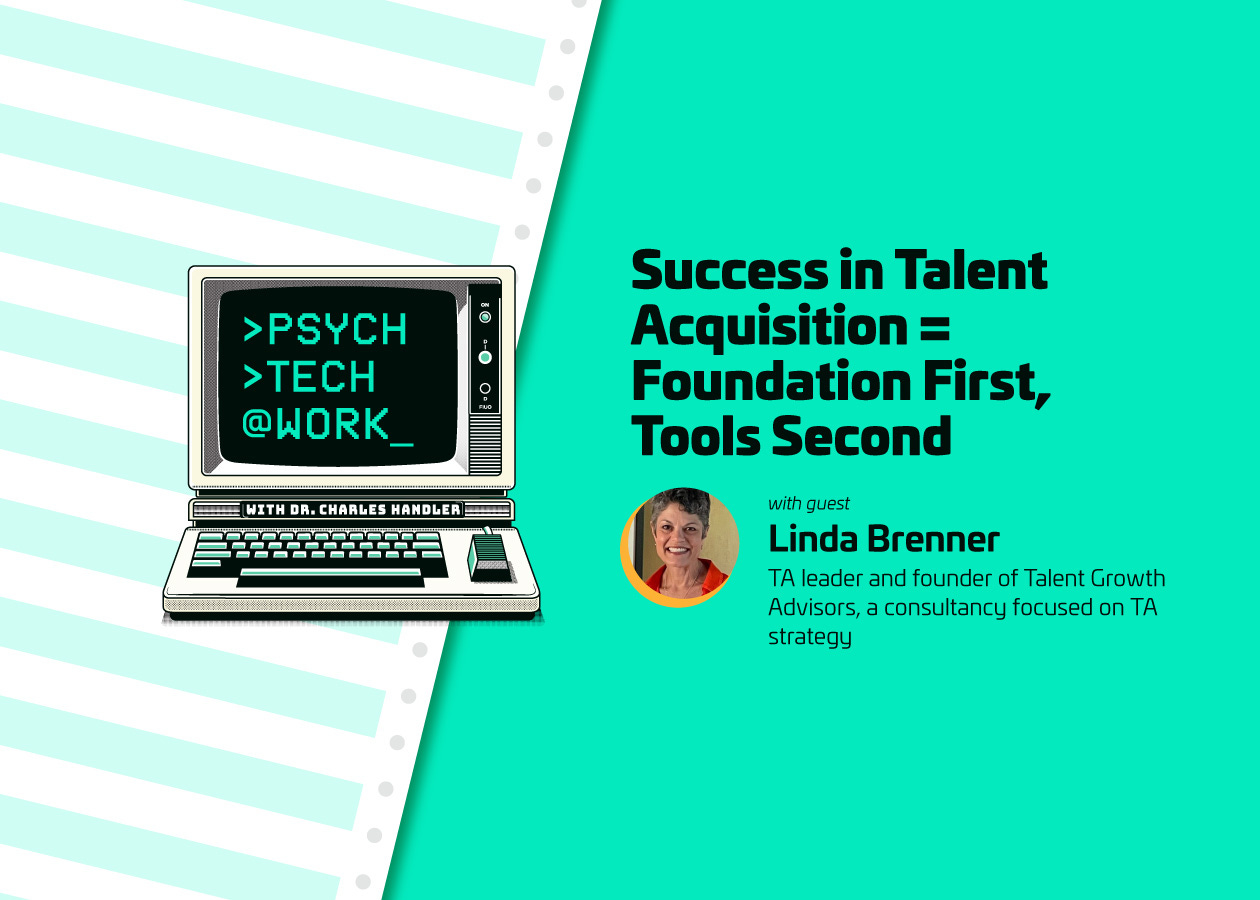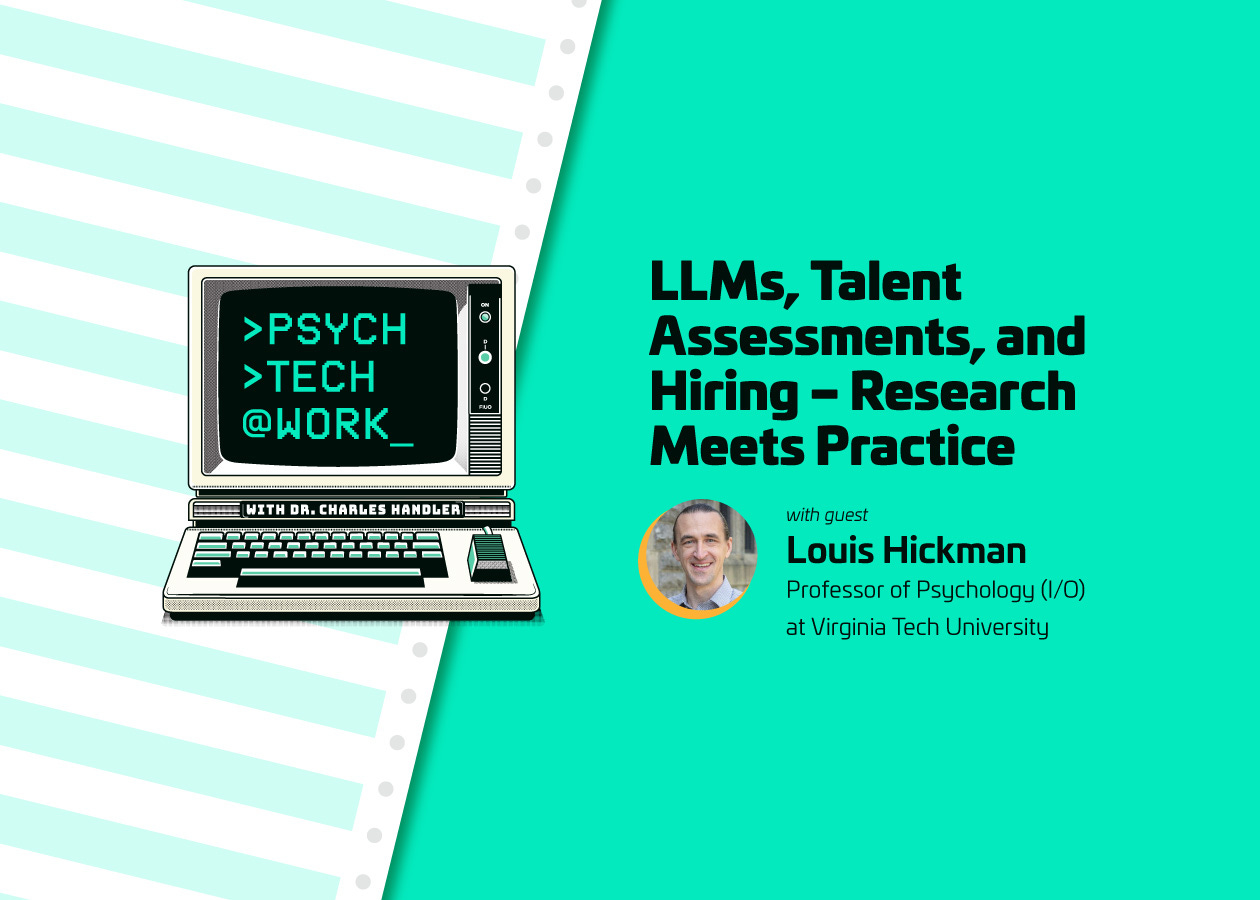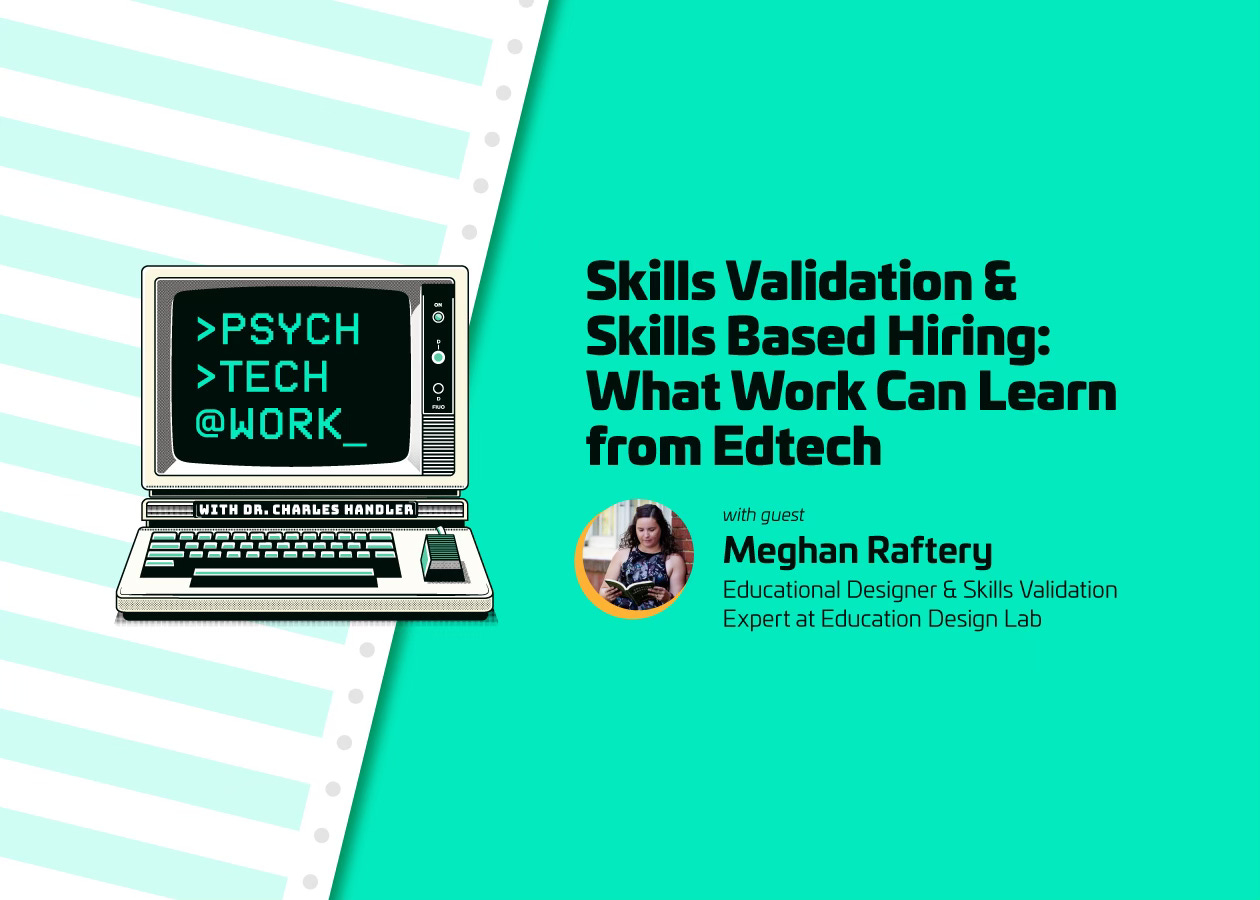Crafting the Future of Ethical AI in the Workplace with Matt Scherer
Update: 2024-03-26
Description
"Legislation... has not kept up with the pace of technological advancements, posing significant challenges for ensuring fairness in AI-driven hiring processes."
-Matt Scherer
Summary:
In this episode of "Science 4-Hire," I welcome Matt Scherer, Senior Policy Counsel for Workers' Rights at the Center for Democracy in Technology, a non-profit based in Washington, D.C. The CDT champions the advancement of civil rights in the digital age, striving to ensure technology respects and enhances individuals' rights and democratic values.
Matt and I have an enthusiastic conversation about the importance of understanding and navigating the evolving landscape of AI and automation in hiring processes.
Matt brings his expertise to the table, dissecting the intersection of emerging technologies with workplace rights, the nuances of AI legislation, and the vital role of public policy in safeguarding fairness and privacy.
Matt and I dive right into some great dialogue about the challenges posed by electronic surveillance, automated management systems, and the quest to elevate worker voices through technology.
We spend a good deal of time focusing on the critical evaluation of AI hiring tools, highlighting New York City's Local Law 144 and its implications for a broader regulatory framework.
Matt provides some really interesting and important points about the criticality of using a design-first mentality in developing AI tools as a critical part of ensuring they serve to enhance worker empowerment rather than diminish it.
Insightful Moments:
This is a public episode. If you would like to discuss this with other subscribers or get access to bonus episodes, visit charleshandler.substack.com
-Matt Scherer
Summary:
In this episode of "Science 4-Hire," I welcome Matt Scherer, Senior Policy Counsel for Workers' Rights at the Center for Democracy in Technology, a non-profit based in Washington, D.C. The CDT champions the advancement of civil rights in the digital age, striving to ensure technology respects and enhances individuals' rights and democratic values.
Matt and I have an enthusiastic conversation about the importance of understanding and navigating the evolving landscape of AI and automation in hiring processes.
Matt brings his expertise to the table, dissecting the intersection of emerging technologies with workplace rights, the nuances of AI legislation, and the vital role of public policy in safeguarding fairness and privacy.
Matt and I dive right into some great dialogue about the challenges posed by electronic surveillance, automated management systems, and the quest to elevate worker voices through technology.
We spend a good deal of time focusing on the critical evaluation of AI hiring tools, highlighting New York City's Local Law 144 and its implications for a broader regulatory framework.
Matt provides some really interesting and important points about the criticality of using a design-first mentality in developing AI tools as a critical part of ensuring they serve to enhance worker empowerment rather than diminish it.
Insightful Moments:
- Matt discusses the Center for Democracy in Technology's (CDT) mission to advance civil rights in the digital age, focusing on the workplace implications of emerging technologies such as AI and automated management systems. The CDT's commitment to this cause is grounded in ensuring technology serves to enhance, not undermine, workers' rights and privacy.
- The conversation highlights New York City's Local Law 144, examining its strengths and weaknesses in regulating AI hiring tools. Despite being a pioneering piece of legislation, Matt suggests that the law is riddled with loopholes that many companies exploit to avoid compliance, demonstrating the challenges in crafting effective regulatory frameworks.
- Matt emphasizes the importance of design-first thinking in developing AI technologies for hiring. He argues that most challenges associated with AI and automated hiring tools stem from design issues, advocating for a holistic approach that integrates ethical considerations from the outset.
- The dialogue touches on the role of transparency in AI-driven hiring processes. Current practices often leave candidates in the dark about when and how they are being evaluated by AI, stressing the need for legislation that mandates clear disclosure to candidates.
- An exploration of upcoming legislation reveals a split between stronger regulatory regimes advocated by civil rights groups and more loophole-ridden proposals pushed by tech companies. This tension underscores the ongoing debate over how to effectively govern AI in hiring while protecting workers' rights.
- Matt shares insights into the civil rights standards for 21st-century employment selection procedures, a document aimed at modernizing and expanding upon the 50-year-old uniform guidelines for employee selection procedures. This initiative reflects a broader effort to update legal and ethical standards for employment assessments in light of advancements in AI and technology.
This is a public episode. If you would like to discuss this with other subscribers or get access to bonus episodes, visit charleshandler.substack.com
Comments
Top Podcasts
The Best New Comedy Podcast Right Now – June 2024The Best News Podcast Right Now – June 2024The Best New Business Podcast Right Now – June 2024The Best New Sports Podcast Right Now – June 2024The Best New True Crime Podcast Right Now – June 2024The Best New Joe Rogan Experience Podcast Right Now – June 20The Best New Dan Bongino Show Podcast Right Now – June 20The Best New Mark Levin Podcast – June 2024
In Channel





















